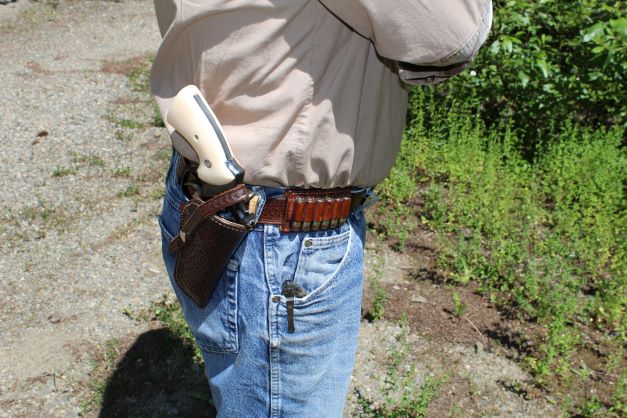
By Dave Workman
Editor-in-Chief
ANALYSIS: The results of a new poll released Monday by YouGov.com show more Gen Z and Millennial Republican voters “are more likely than older Republicans to believe that gun laws should be more restrictive (39% vs. 22%).”
“Support for more restrictive gun laws has continued to trend upwards among young Republicans,” the survey said, “to 47% in February 2023 from 41% in August 2022 – while members of the older generation of Republicans are more likely to believe gun laws are sufficient as they are today.”
But what is driving these younger voters to accept the notion that more gun control is acceptable? Perhaps it is what they are taught in high school and college by instructors who disagree with three Supreme Court rulings in the past 15 years, all affirming that the Second Amendment protects an individual right to keep and bear arms.
Maybe they’ve read editorials such as the ones appearing in the Seattle Times in recent weeks, both supporting stricter gun control laws. They may be read here and here.
It might also be the sensational news about school shootings, such as the one last year in Uvalde, Texas, or on the campus of Michigan State University earlier this year.
Regardless of the motivation, the YouGov.com survey shows 55 percent of Americans “believe gun laws should be more restrictive than they are today, but Democratic and Republican views differ starkly on the matter.”
The survey report notes “Democrats (79%) are 24 percentage points more likely than the average American to say gun laws should be more restrictive as compared to 29% of Republicans who believe the same.
“Beliefs regarding gun rights in the country are similarly divided across party lines,” YouGov.com added. “Most Democrats (56%) say that the Constitution only protects access to guns for militias while just 20% of Republicans agree; 80% say the Constitution protects unrestricted access to guns for everyone.”
YouGov.com is a British-based company, according to an online biography, but they’ve been doing polling in the U.S. for a number of years.
This particular survey not only shows the stark differences between Republicans and Democrats generally on gun rights, but also what appears to be a significant generational difference as well. The majority of Democrats still cling to the discredited opinion that only the militia should have arms—rejected by the high court in the Heller (2008), McDonald (2010) and Bruen (2022) rulings—while the majority of Republicans obviously “get it.”
Polls by Gallup and Pew show more Americans favor stricter gun control laws, but the latter polling firm also noted in September 2021, “Federal data suggests that gun sales have risen in recent years, particularly during the coronavirus pandemic. In 2020, the number of monthly federal background checks for gun purchases was consistently at least 20% higher than in the same month in 2019, according to the FBI’s National Instant Criminal Background Check System. The largest comparative percentage point difference occurred in July 2020 – when about 3.6 million background checks were completed, 44% more than were conducted in July 2019.”
Not only does that belie the notion fewer people favor gun ownership, but so also does recent data from the FBI National Instant Check System (NICS) which shows the raw number of background checks in February (2,565,607) was higher than for the same month last year (2,554,912). Those numbers do not translate to actual completed firearms transactions, but they do indicate a healthy interest in gun ownership.
According to the National Shooting Sports Foundation and The Dealer Wire, February was the 43rd consecutive month where the “adjusted” NICS checks have exceeded 1 million in a single month. NSSF publishes an “adjusted” number of NICS checks that more closely reflects the number of actual gun transfers at retail.
“The adjusted NICS data were derived by subtracting out NICS purpose code permit checks and permit rechecks used by states for CCW permit application checks as well as checks on active CCW permit databases. NSSF started subtracting permit rechecks in February 2016,” NSSF said in a press release.



